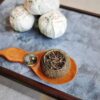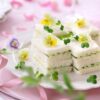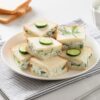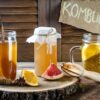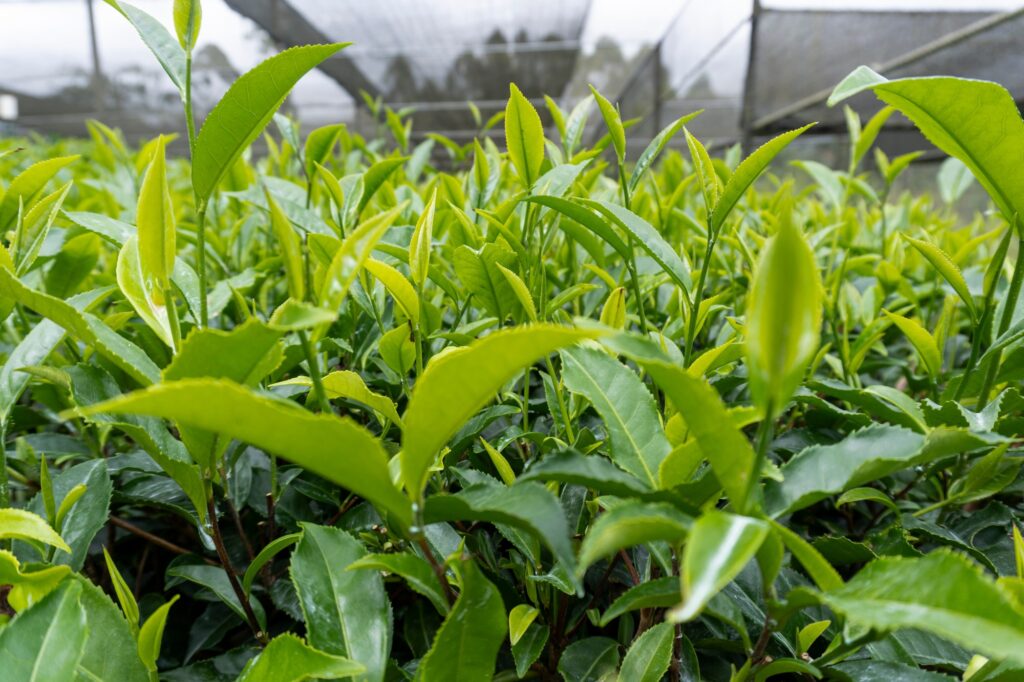
Nestled in the lush tropical landscapes of Sri Lanka, a small island nation in the Indian Ocean, lies a treasure trove of exquisite tea leaves that have captivated the hearts and palates of connoisseurs worldwide. Ceylon black tea, renowned for its rich, robust flavor and enticing aroma, has carved a niche for itself in the realm of fine teas, transcending mere beverage status to become a revered culinary experience.
This exceptional tea variety, cultivated in the fertile highlands of Sri Lanka, owes its distinctive character to the unique combination of climate, soil, and meticulous processing techniques handed down through generations of skilled tea makers. From the moment the tender leaves are plucked to the intricate art of withering, rolling, and firing, every step is a testament to the passion and expertise that goes into crafting this prized brew.
History and origins of Ceylon black tea
The origins of Ceylon black tea can be traced back to the 19th century when the British introduced tea cultivation to Sri Lanka, then known as Ceylon. Initially, the island was a hub for coffee production, but a devastating blight decimated the coffee plantations, prompting a shift towards tea cultivation.
In 1867, a Scotsman named James Taylor pioneered the first commercial tea plantation in the Loolecondera estate, ushering in a new era of tea production in Ceylon. Over time, the island’s ideal climate and fertile soil proved to be the perfect canvas for cultivating exceptional tea leaves, and the industry flourished, becoming a cornerstone of Sri Lanka’s economy and cultural heritage.
The unique characteristics of Ceylon black tea
Ceylon black tea stands apart from its counterparts due to its distinctive flavor profile and captivating aroma. The tea leaves, grown at high altitudes in the misty hills of Sri Lanka, undergo a meticulous process of withering, rolling, and firing, which imparts a rich, full-bodied taste and a mesmerizing bouquet.
The flavor of Ceylon black tea is often described as robust and brisk, with notes of malt, chocolate, and a subtle hint of citrus. Its depth and complexity are unparalleled, making it a favorite among tea enthusiasts who appreciate a bold and invigorating cup.
Health benefits of drinking Ceylon black tea
Beyond its exquisite taste, Ceylon black tea offers a plethora of health benefits that have been celebrated for centuries. Rich in antioxidants, particularly theaflavins and thearubigins, this tea variety has been associated with numerous positive effects on overall well-being.
- Boosting Cardiovascular Health: Studies have shown that regular consumption of Ceylon black tea may help lower the risk of heart disease by reducing LDL (bad) cholesterol levels and improving blood vessel function.
- Supporting Weight Management: The polyphenols present in Ceylon black tea have been linked to increased metabolism and fat oxidation, potentially aiding in weight management efforts.
- Enhancing Cognitive Function: The combination of caffeine and L-theanine found in Ceylon black tea has been suggested to improve focus, alertness, and cognitive performance.
- Anti-Inflammatory Properties: The antioxidants in Ceylon black tea may help combat inflammation, which is a contributing factor to various chronic conditions.
- Promoting Oral Health: The fluoride and tannins present in this tea variety may help strengthen tooth enamel and prevent bacterial growth, supporting overall oral hygiene.
Different grades and types of Ceylon black tea
Ceylon black tea is available in various grades and types, each offering a unique flavor profile and character. Understanding these distinctions can help tea enthusiasts navigate the diverse world of Ceylon black tea and find the perfect brew to suit their preferences.
- Pekoe: This term refers to the highest grade of Ceylon black tea, made from the tender buds and youngest leaves. Pekoe teas are known for their delicate flavor and exquisite aroma.
- Broken Orange Pekoe (BOP): As the name suggests, BOP teas are made from broken leaves, resulting in a stronger and more robust flavor compared to whole-leaf teas.
- Dust: Dust teas, also known as “fannings,” are made from the smallest particles of tea leaves and are often used in tea bags or for blending purposes.
- Flowery Orange Pekoe (FOP): FOP teas are made from the highest quality leaves and buds, offering a balanced and refined flavor profile.
- Golden Bud: This premium grade of Ceylon black tea is made from the delicate golden tips of the tea plant, resulting in a smooth and delicate cup with a slightly sweet note.
Popular Ceylon black tea blends
While pure Ceylon black tea is a delight in itself, its versatility has given rise to numerous popular blends that combine the unique flavors of this tea with other ingredients, creating harmonious and captivating taste experiences.
- English Breakfast Blend: A classic blend that combines Ceylon black tea with robust Assam tea, creating a full-bodied and invigorating cup perfect for starting the day.
- Earl Grey: This iconic blend marries the rich flavors of Ceylon black tea with the fragrant essence of bergamot, resulting in a refreshing and aromatic cup.
- Masala Chai: A beloved Indian blend that combines Ceylon black tea with a medley of spices like cardamom, cinnamon, cloves, and ginger, creating a warm and comforting beverage.
- Lapsang Souchong Blend: For those who appreciate a smoky flavor, this blend combines Ceylon black tea with the distinctive smokiness of Lapsang Souchong, creating a unique and captivating taste experience.
Brewing the perfect cup of Ceylon black tea
To fully appreciate the exquisite flavors of Ceylon black tea, proper brewing techniques are essential. Here are some tips to ensure a perfect cup every time:
- Water Quality: Use fresh, filtered water for the best flavor extraction. Avoid using distilled water, as it can lead to a flat taste.
- Temperature: Ceylon black tea requires a water temperature between 195°F and 205°F (90°C and 96°C) for optimal steeping.
- Steeping Time: Steep the tea leaves for 3 to 5 minutes, adjusting the time according to your desired strength.
- Leaf-to-Water Ratio: Use approximately one teaspoon of loose-leaf tea or one tea bag per 6 to 8 ounces of water.
- Brewing Vessel: Opt for a teapot or infuser that allows the tea leaves to fully unfurl and release their flavors.
- Milk or Lemon: While some prefer their Ceylon black tea plain, others enjoy adding a splash of milk or a squeeze of lemon to enhance the flavors.
Where to buy Ceylon black tea
Ceylon black tea can be found in specialty tea shops, gourmet stores, and online retailers worldwide. When purchasing this prized tea, look for reputable sources that prioritize freshness and quality.
Many tea estates in Sri Lanka offer direct-to-consumer sales, allowing tea enthusiasts to purchase premium Ceylon black tea directly from the source. This not only ensures the highest quality but also supports the local tea industry and the communities that have nurtured this tradition for generations.Indulge in the exquisite flavors of Ceylon black tea and elevate your tea-drinking experience. Visit our online tea shop today and explore our curated selection of premium Ceylon black teas, sourced directly from the finest tea estates in Sri Lanka. With our commitment to quality and freshness, you can savor the authentic taste of this prized brew in every sip. Don’t miss out on this opportunity to embark on a flavorful journey – order your Ceylon black tea now and let the captivating aromas transport you to the lush tea gardens of Sri Lanka.
Ceylon black tea in culinary delights
Beyond its role as a beloved beverage, Ceylon black tea has found its way into various culinary delights, adding depth and complexity to dishes and desserts alike. Its versatility and rich flavor profile make it an ideal ingredient for elevating culinary creations.
- Tea-Smoked Meats and Seafood: The smoky notes of Ceylon black tea can be used to infuse meats and seafood with a unique and tantalizing flavor through the process of tea-smoking.
- Tea-Infused Baked Goods: From scones and cakes to cookies and pastries, the addition of Ceylon black tea imparts a subtle yet distinctive flavor that complements the sweetness of baked treats.
- Tea-Marinated Dishes: The tannins and flavors of Ceylon black tea can be used to create flavorful marinades for meats, vegetables, and tofu, adding depth and complexity to the dish.
- Tea-Infused Cocktails: Mixologists have embraced the unique flavor profile of Ceylon black tea, incorporating it into creative cocktails and mocktails, offering a refreshing and sophisticated twist on traditional beverages.
The enduring legacy of Ceylon black tea
Ceylon black tea is more than just a beverage; it is a cultural and culinary treasure that has captured the hearts and palates of tea enthusiasts around the globe. From its rich history and unique flavor profile to its diverse applications in the culinary world, this prized brew continues to captivate and inspire.
As you savor each sip of Ceylon black tea, you are partaking in a tradition that spans centuries, one that has been meticulously cultivated and refined by generations of skilled tea makers. With each flavor note and aroma, you are transported to the lush tea gardens of Sri Lanka, where the secrets of this exquisite brew are carefully guarded and passed down.
Whether enjoyed as a invigorating morning ritual, a soothing afternoon respite, or an elegant accompaniment to culinary delights, Ceylon black tea remains a timeless and cherished indulgence, a testament to the enduring legacy of Sri Lanka’s tea culture and the unwavering pursuit of perfection in every cup.

